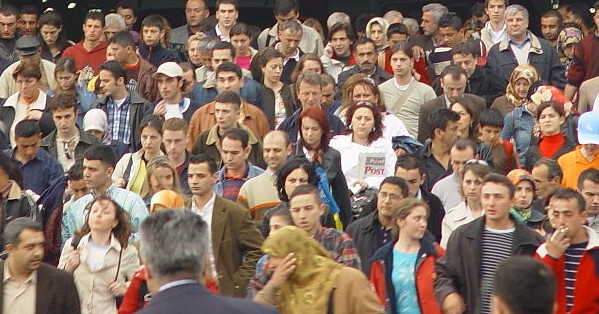
Who are we, anyway? Collectively, I mean—politically, as Americans. Whom do we believe we are? What do the words we use to name ourselves reveal about the way we think we stand in relation to one another, to the whole? The word you hear most often is consumers. We are all consumers. Which means what? That our main job, in this enterprise that we all share, is to use stuff up. Not a political role at all, but only an economic, and what’s more, a passive or recessive—an, as it were, alimentary—one. We aren’t even workers, which sounds too militant, only consumers. Our chief responsibility is just to keep on swallowing.
When we’re not consumers, we’re taxpayers. Political actors, but of a curious kind. To regard ourselves as taxpayers is to think of politics, precisely, in economic terms. To think of politics, in fact, as consumers. As customers. And notice how invidious it is, that term. Because everyone knows that not everyone pays taxes. Taxpayers means that the government should do for those who pay for it, just as much as they pay for it. For every quid, a quo. All animals are equal, but some animals are more equal than others. The poor, the disabled, the unemployed: the freeloaders—taxpayers means they don’t deserve a thing.
Come election time, we miraculously turn into voters. Finally some actual democracy, though even here there’s a nudge and a wink. For voters isn’t everyone, either, it is only the people who bother to show up—maybe five out of nine in presidential elections, three out of eight in the midterms—and politicians know exactly what the difference is. To put it another way, the category voters is constituted by the people who seek our votes—go negative to suppress turnout, gin up outrage to mobilize the base—not the other way around. Like consumers, voters is a largely passive concept (an analogy embodied in the insidious notion, common in marketing talk, that people “vote with their dollars”). Voters take what they can get, and get what they deserve.
The missing word, the word we never use, is citizens. Citizens is the difference between a mere democracy and the thing we really are—another term you never hear—a republic. Citizens are active. Citizens do more than express a preference every other year. Citizens don’t just look after themselves, they take responsibility for the collective good—or rather, they look after themselves by taking responsibility for the collective good. In a republic, you don’t vote your private interest, you vote your conception of the common interest. And you don’t just vote. Maybe if we saw ourselves as citizens, then that is what we might become.

